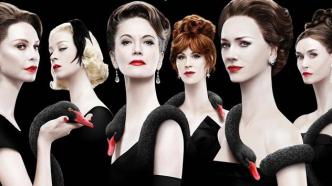
After the death of the American writer Truman Capote, people close to him believed that the few manuscripts left behind were all of the "Swan Story". His last unfinished novel, Answered Prayers, did not become the "Proustian masterpiece" he often spoke of.
The second season of "Feud" leaves Hollywood and comes to New York City. This season's name is: Capote vs. The Swans. The main time period during which the story takes place: from 1975, when an excerpt from the book was published in Esquire magazine, which led to the breakup between the upper-class New York ladies and Capote, each of whom was the prototype of the article, to 1978, when one of the prototypes of the article was called Until the death of Babe Paley, "New York's most beautiful woman".
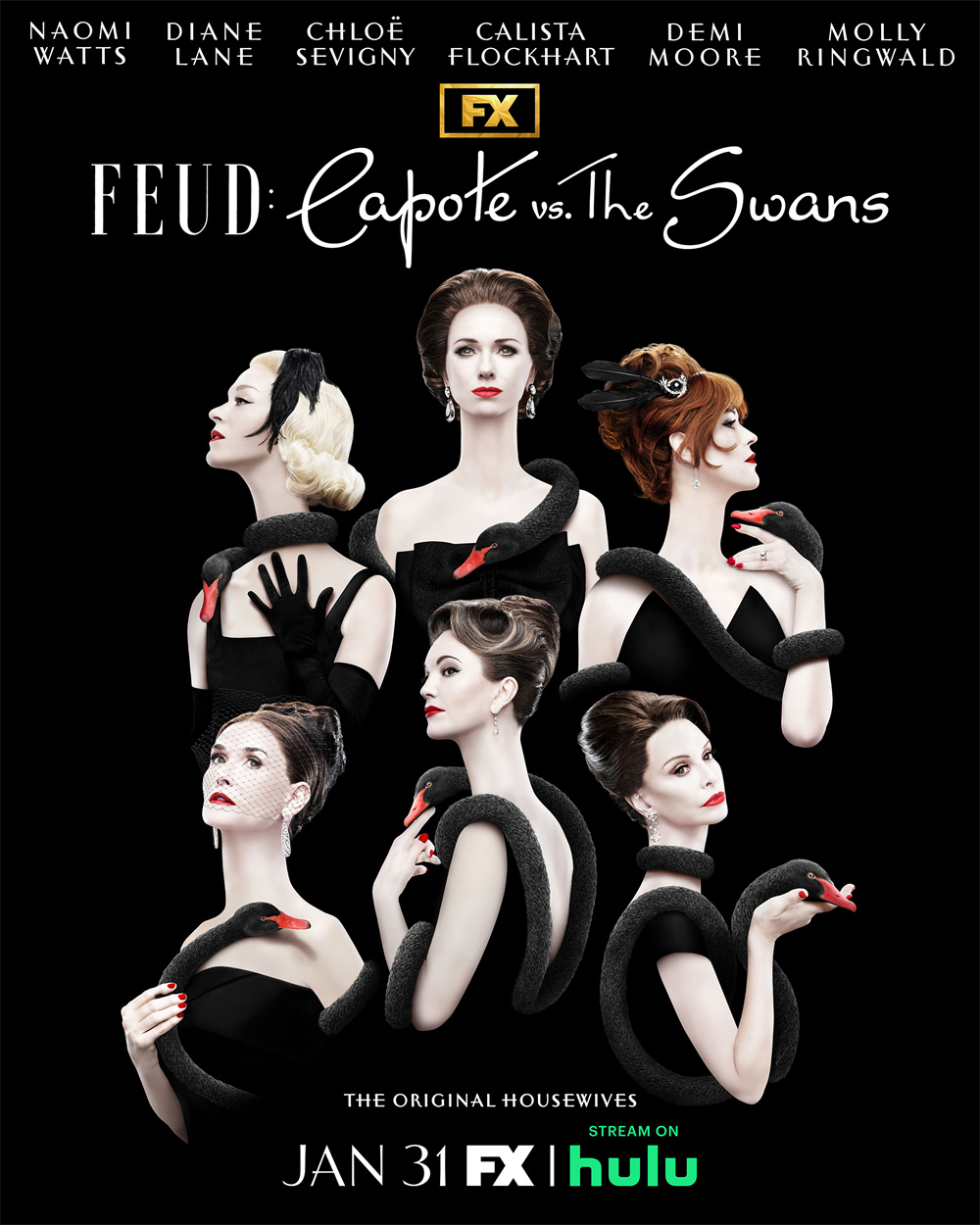
"Enemy" Season 2 Poster
Capote failed to complete what he considered to be his masterpiece, not because he lived too short (he died of a drug overdose at the age of 59), but because he had long since lost his genius for writing and slid along a downward spiral.
A Southern boy dropped out of school early and came to New York to make a living. He relied on writing to enter the most powerful class. Truman Capote had an unparalleled talent. "Breakfast at Tiffany's," "In Cold Blood" and some short stories from Once Upon a Time in the South were enough to give him a ticket to any room in New York. Capote is reminiscent of his predecessors, Fitzgerald and Hemingway. They were all once pretty boys who drank too much, died young, and experienced the deep fear of losing their talents.
Capote's coldness is reminiscent of the heroine's father in Dostoyevsky's "Nedochka: A Woman's Life". A gifted violinist gave up on himself in fear of losing his talent and discovering that it was lost, until he became extremely cold-blooded.
Capote’s halo as one of America’s finest writers is missing from “Feud 2.” Capote, played by Tom Hollander, was half-bald, fat, dull and yellow when he appeared on the stage, and his youth and beauty were no longer there. Instead, there is an open posture, with the face always facing the ceiling when walking, and the hands dancing in the water waves of the air. Another kind of charming and charming. This well-known out man became angry when he mentioned being called a "faggot" behind his back. In an instant, he changed from a warm friend of women to a ruthless avenging angel.
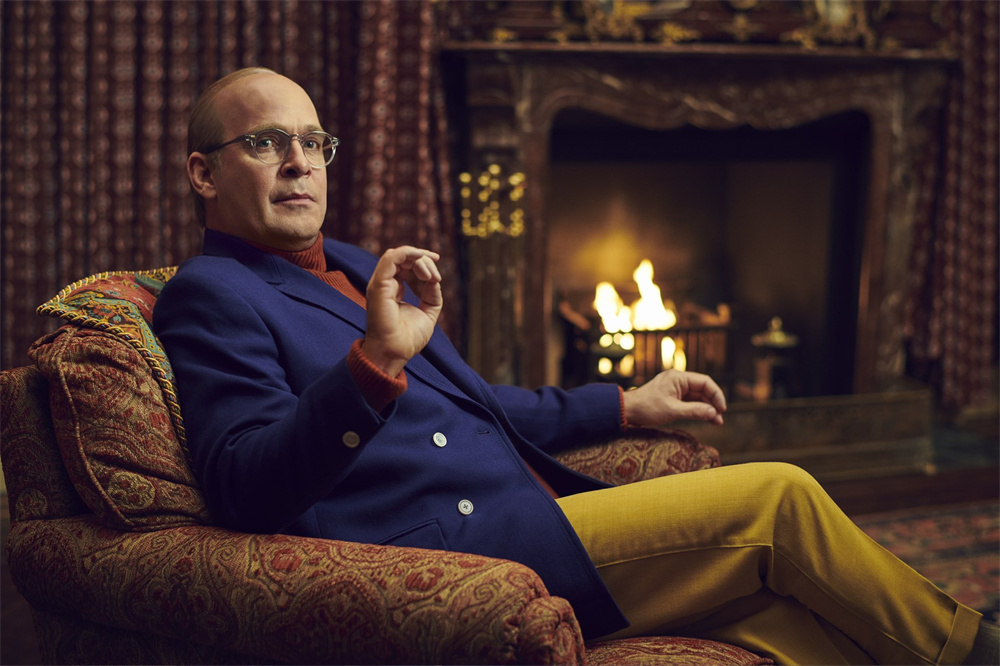
"Enemy" Season 2 Stills
In 1975, Truman Capote, who had become close friends with the most powerful women in New York, lost along with his beauty and talent, his insight as a writer. Halfway through the play, Capote, trapped in his own hell, lost his understanding and interest in the swans he was writing about. He didn't understand, nor did he want to figure out why a "fictional article" would make them collectively reject him. He just drank, kept drinking, and hung out with his abusive bankers. Tried withdrawal and then resumed drinking.
Old enemies, like loved ones, have deep bonds. Unfortunately, this bond is missing between Capote and Swan in the play.
"Enemy 2" could have been shot better. The cast is very good and the acting is good, but the script is not good. It's shallow, repetitive, and empty.
If Capote is a piece of charcoal that still shines brightly, and the sunset is still worth admiring, his swans are just a group of ordinary middle-class housewives in the name of noble ladies. Time and time again at noon gatherings at La Côte Basque, nothing else was discussed, "Let's talk about Capote first." It was always Capote, how to deal with him, whether she still missed him, the women chattered endlessly. The only thing that changed was Baby Paley at the dinner table, who was getting closer and closer to the end of her life under the bite of cancer.
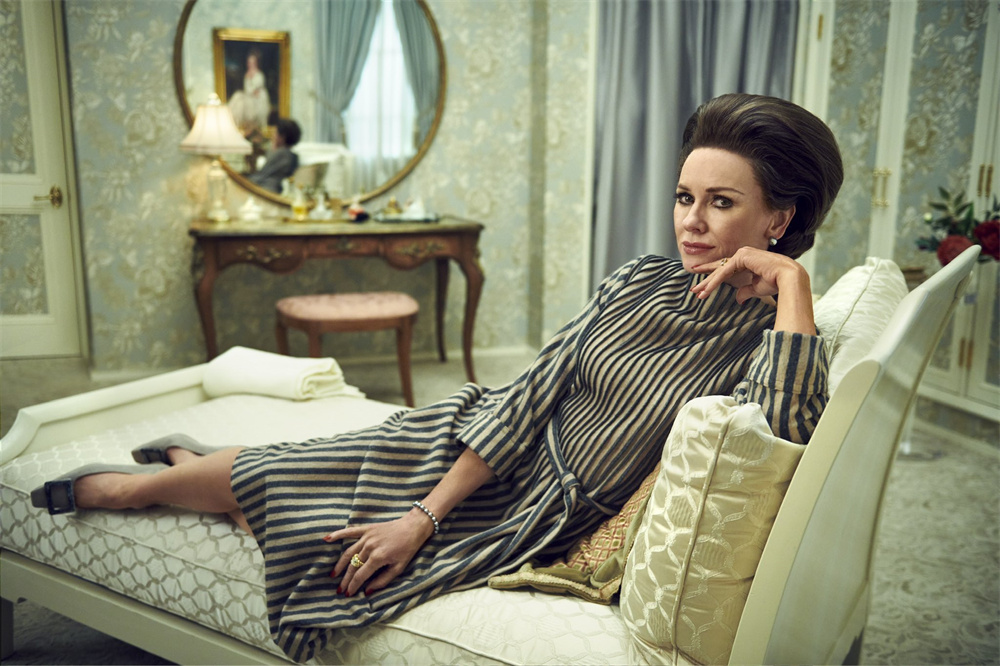
"Enemy" Season 2 Stills
The friendship between them is very strong, supporting each other, sharing life, and never letting who sleeps with whose husband or who secretly breaks through the "Anti-Capote League" to have lunch with him affect this friendship. This friendship is written in a superficial and sloppy way. Only the figures of the swans dancing together on the water can be seen, but the soles of their feet shaking hard under the water are not visible.
The support the script can provide them is really limited, and the "swans" can only rely on themselves. Each swan has its own moment, which relies not on lines, but on the actor's accumulation as a generation of fashion icons and excellent actresses.
Chloë Sevigny plays CZ. The shadow of her own rebellious girl is looming in CZ, dancing with double auras.
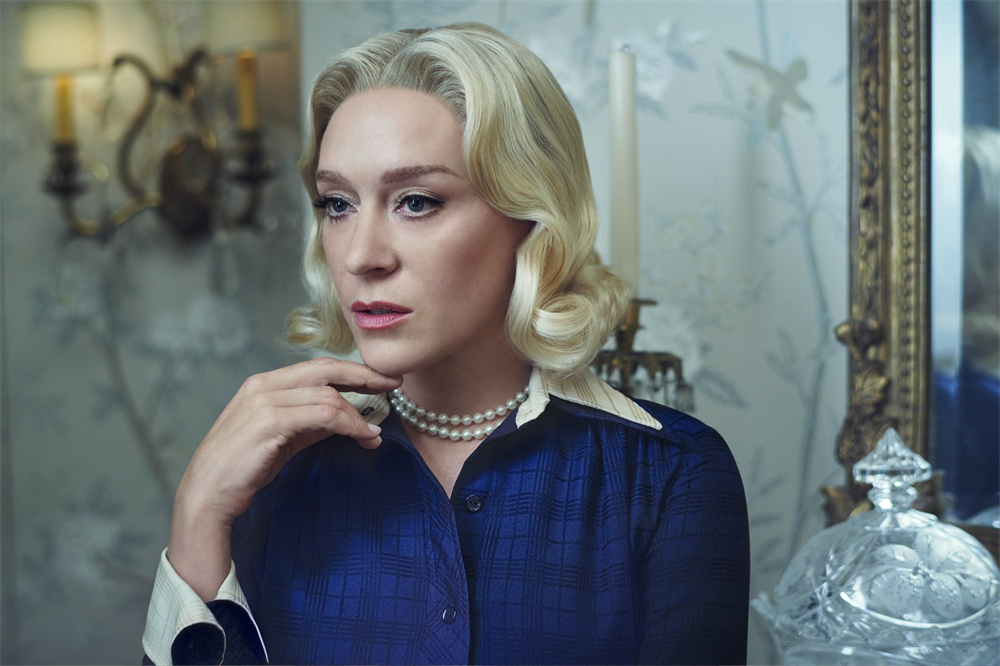
"Enemy" Season 2 Stills
Demi Moore's Ann broke into the "Black and White Ball" uninvited, her hurt expression like a wave of water in the feathers surrounding her.
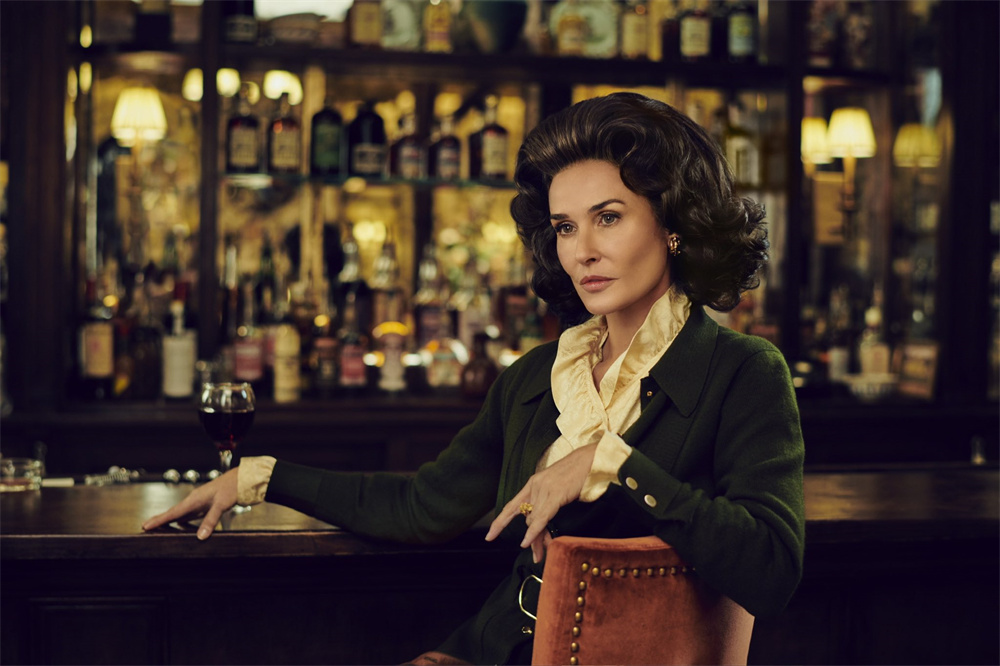
"Enemy" Season 2 Stills
Diane Lane's Slim ensures everyone in the room gets her strong signal with her laser eyes and thin, ever-changing lips.
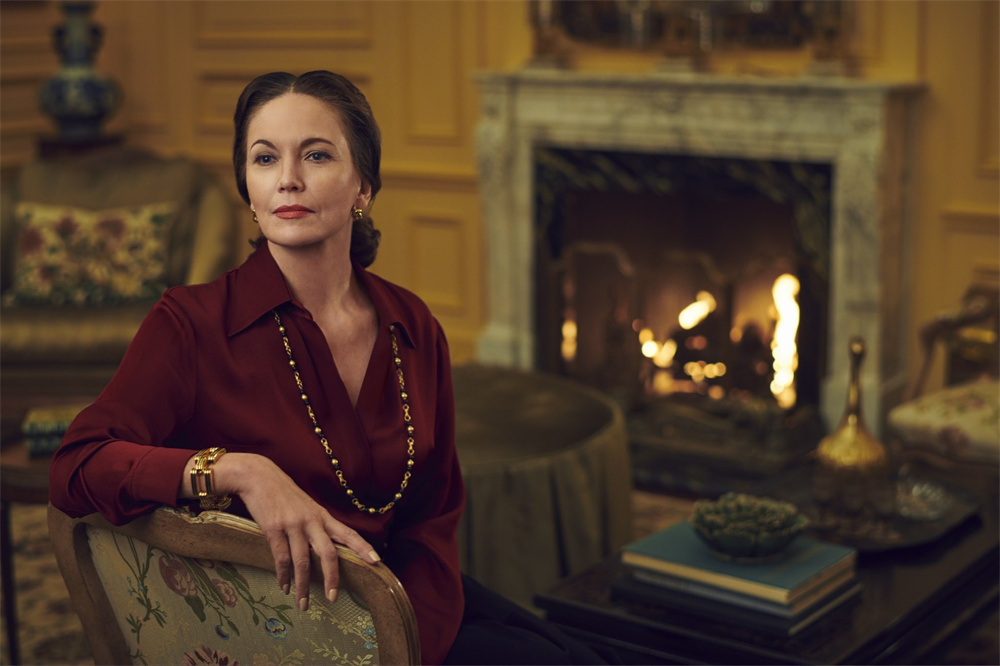
"Enemy" Season 2 Stills
Molly Ringwald's Joanna is far away in Los Angeles, with a plump figure and a pout that's even more attractive than in her youth. She displays more loving and skittish qualities than the New York swans.
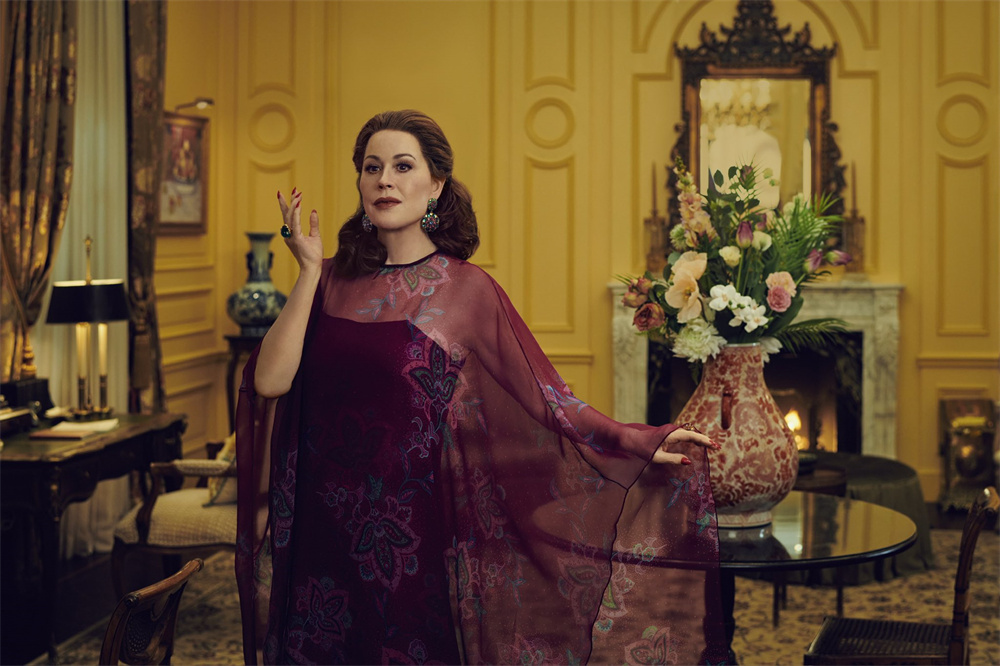
"Enemy" Season 2 Stills
And Babe Paley, the swan of swans. Naomi Watts is alternately full and haggard in the present and flashbacks. The blue chemotherapy liquid was injected into her body, gradually sucking away the moisture around her lips. His spine was rugged and his pair of thick gray eyes looked even bigger.
New York's upper class, composed of old money and new rich, is very different from the Paris society described by Proust. New York is young, Paris is old. The young ones tried their best to imitate the old ones. At the dance, at first glance, there was no difference. Capote holds a social event, the "Black and White Ball," which shows his taste thanks to Babe's generous help. From invitation cards to party decorations, everything goes through her eyes.
Beneath the glitz, Priest's Parisian society is crowded with real people, who are intertwined with each other, have different personalities, and are proud of their shocking indifference. The New York upper class in "Enemy 2" is haunted by vague figures. They are beautiful, especially women (because men are in a hurry to make money and have no time to become beautiful), but they are people without personality. They have no time to become indifferent and develop a different attitude towards life than ordinary people.
Although Parisian socialites live in a sealed crystal ball, the social changes at the turn of the 19th and 20th centuries cast changing lights and shadows on the crystal ball. After all, the two worlds are connected to each other, just like a large hotel on the summer seaside. Although there is a glass wall separating the two societies, the people in the restaurant can still see the civilians peeping at them from outside.
Lawrence Rimmer's original work still reflects the changes of the times, but the upper class society in "Enemy 2" is completely isolated from the world. The swans remained unmoved, as if the outside world did not exist. The only shock was when they, who were used to wearing long gloves, discovered in a department store that there was no glove counter at all and no one was wearing long gloves.
What will end this frozen world will be the disco and punk waves that followed in the 1970s. The next generation of swans will give up their mother's lifestyle and embrace a new era.
If the mother's life is as poor as described in the play, it would not be a pity to be abandoned. They only have Capote in their eyes and hearts. The reason for attachment to Capote is simple. Swan lacks the love of her husband and can only find comfort in Capote, a gay writer who is always available.
Capote was attracted by their beauty and high society, but did not love them. What he looked at wholeheartedly was the writing talent that was elusive but no longer within his reach. The writer fantasizes about one day completing a "Proustian masterpiece" while drunk, but his body is entangled in the bad habit of self-destruction.
Capote and the swans rise and fall in their own whirlpools. If that were all, the show wouldn't need to be 8 episodes long. But it is not unbearable. Because of the beauty, the swans are beautiful, with gorgeous clothes and jewelry, each swan’s delicate color palette and excellent acting skills. Under Capote's ugly appearance, there is also residual beauty.
Perhaps these were the only things that attracted Truman Capote back then. These are enough.